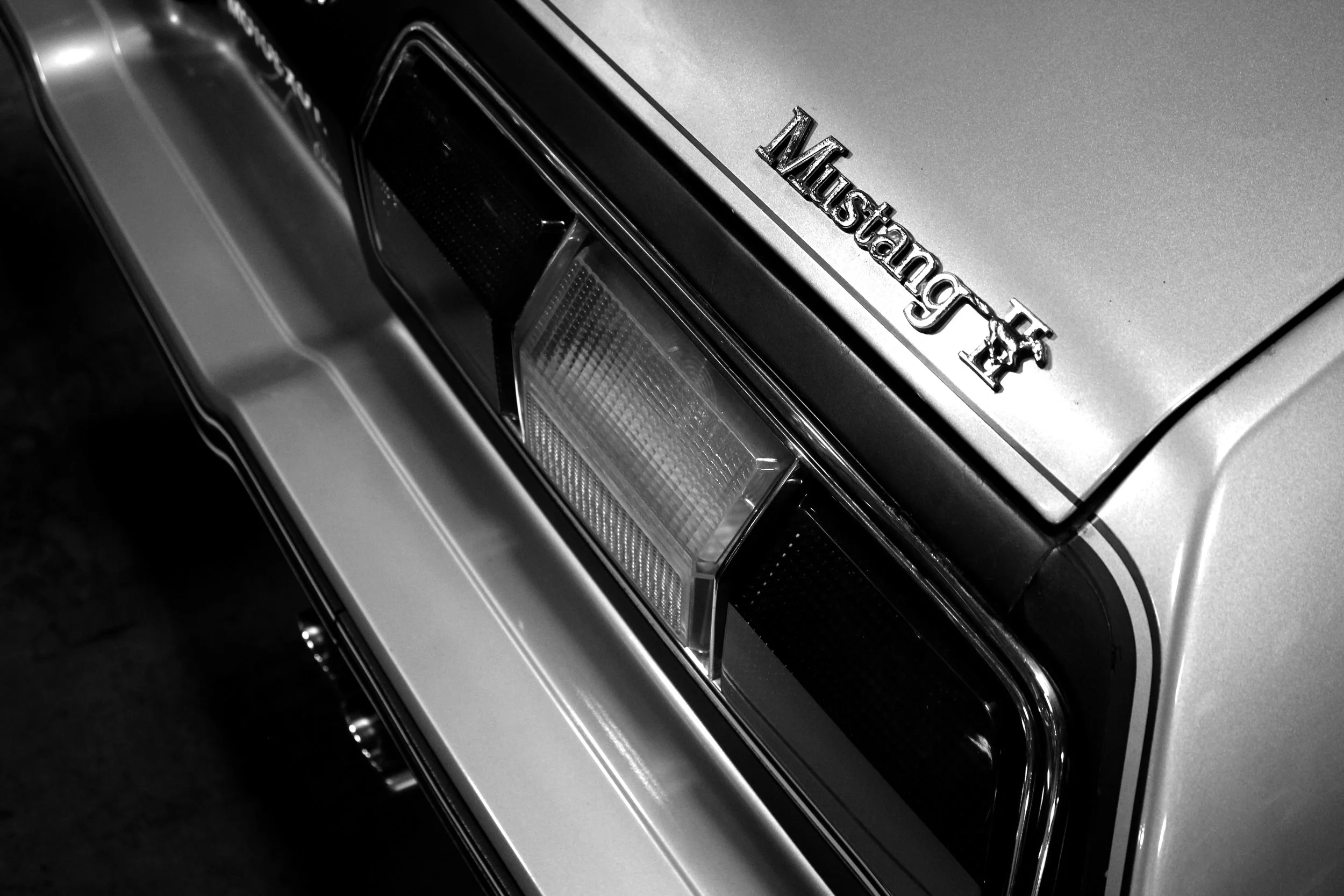Clean Sheet
Even if you don’t know a lot about cars, you know the 1974 Mustang II was kind of a dud. Its 2.3-liter four-cylinder made 83 horsepower. A V8 wasn’t initially available. A luxury model, the Ghia, had a padded vinyl roof, pinstripes, and other stuff that doesn’t belong in (or on) a Mustang.
But wait, doesn’t that just make the Mustang II a product of its time? Luxury trim was intended to attract some Eldorado buyers who were suddenly eco-conscious. Even 83 horsepower was peppier than a Pinto (there’s your slogan, Iacocca!), and anyway, the mid-70s were an automotive dystopia; giant bumpers bolted onto cars ruined their lines, but those lines were pretty lousy in the first place so it was basically a wash. You could get an automatic transmission in a Jeep for the first time, and we still don’t know if that’s a good thing. Kind of like the Renault Gordini Coupe Convertible.
Looking back on it, the Mustang II did three (III) things right. It: 1) adequately met market demands, 2) showed the Mustang’s versatility, which, to date, has included 4, 6, and 8 cylinders, turbochargers and superchargers, coupes, hatchbacks, fastbacks, convertibles, solid rear axles and half shafts, pushrods and dual overhead cams, and apparently a fully electric crossover thing. And, 3) survive.
Acts 11 describes the earliest days of the Church in some equally strange times. In car terms, people were trying to apply old tech (circumcision and Levitical laws) to modern times (post-Pentecost, wherein the disciples were given the power of the Holy Spirit to attract and convert people from all over the world). There was some confusion. So God spoke to Peter in a dream. God showed him a picnic blanket, essentially, full of animals that Peter was supposed to eat. Some of them were “unclean” by Old Testament standards, and Peter was confused. Then, “The voice spoke from heaven a second time, ‘Do not call anything impure that God has made clean.’ This happened three times, and then it was all pulled up to heaven again.” (Acts 11:9-10)
In the next few verses, God speaks clearly to Peter and explains how “unclean” should no longer apply to certain foods, and, crucially, to certain people, regardless of their adherence to ceremonial laws. Because Jesus perfectly kept those laws, he satisfied that legal requirement for all humans. No one is better than another person because they keep certain laws, but in fact all humans are equally guilty (because of our sin) and can equally receive God’s free grace.
God wasn’t changing with the times. This was the plan from the very beginning, immediately after Adam and Eve’s first sin. Humans had no hope of being perfect. Instead, God was telling us that to adapt our understanding of people to God’s grace-oriented perspective. We have to modernize. We have to change.
Today, God is still urging us to adapt our understanding of people. We believe God’s grace is for everyone, but we don’t always want some people to receive that grace. Certain people, maybe, or people who have done certain things. We have expectations of what a Christ follower should do, say, or think, or how they should vote, dress, or speak.
It’s like looking back on a history of Mustangs and saying, “No, Mustang II doesn’t belong. It’s not a Mustang.” Sure, there’s room for discussion there, but there is no such room for us to judge our fellow Christ followers on standards that we’ve invented. Peter had to embrace this as he explained his vision: “Then I remembered what the Lord had said: ‘John baptized with water, but you will be baptized with the Holy Spirit.’ So if God gave them the same gift as he gave us, who believed in the Lord Jesus Christ, who was I to think that I could oppose God?” (Acts 11:17)
When you’re tempted to impose your own standards on someone, think of God’s clean sheet that came to Peter in a vision. We all have a clean sheet with God, because of his forgiveness. We should want everyone alive to have a similarly clean sheet.
Whereas the original Mustang was heavily crafted from Falcon components, the Mustang II was a clean-sheet design (okay, plus some Pinto hardware). It had a new rubber-isolated front subframe, housing a relatively sophisticated front suspension and rack-and-pinion steering rack, that would soon be retrofitted into countless hot rods. Even the horse emblem was slightly different. It was the first mass-produced engine built in America using metric measurements. So next time you see a big-bore throttle body described in millimeters, thank the Mustang II, and remember its clean-sheet design. God offers a clean sheet to you, and everyone else who believes in him.

